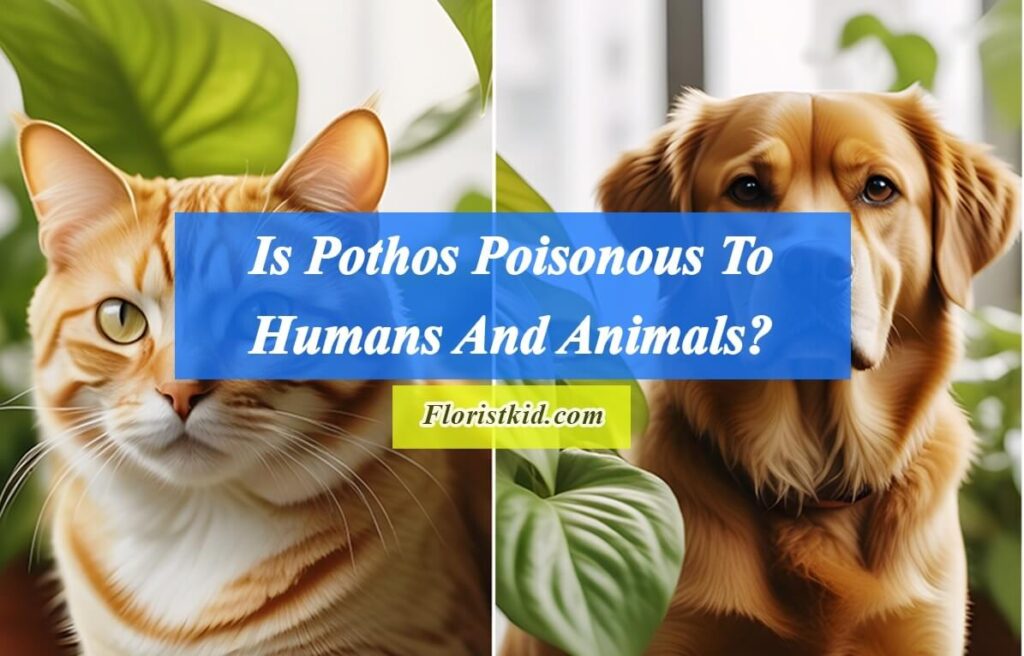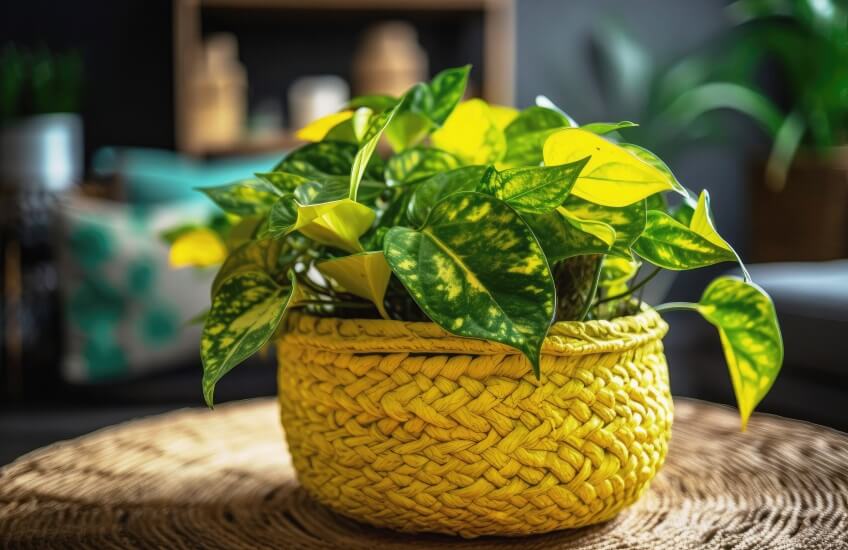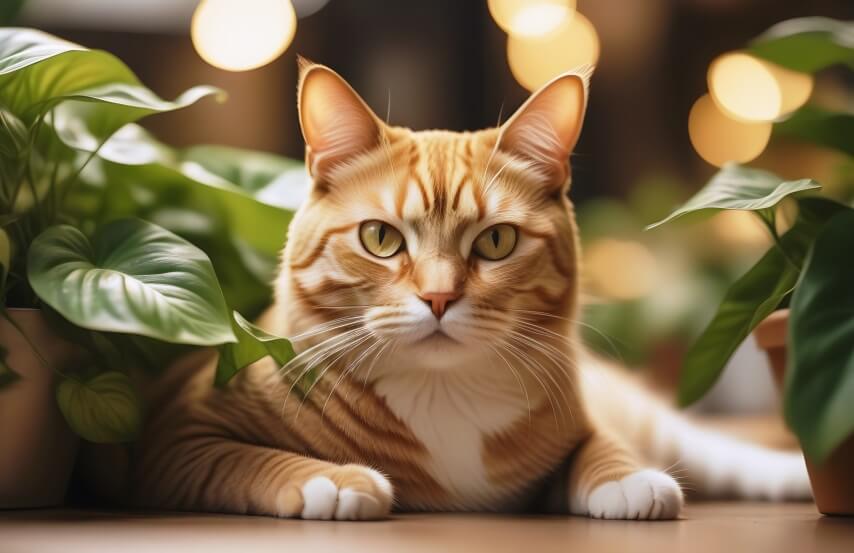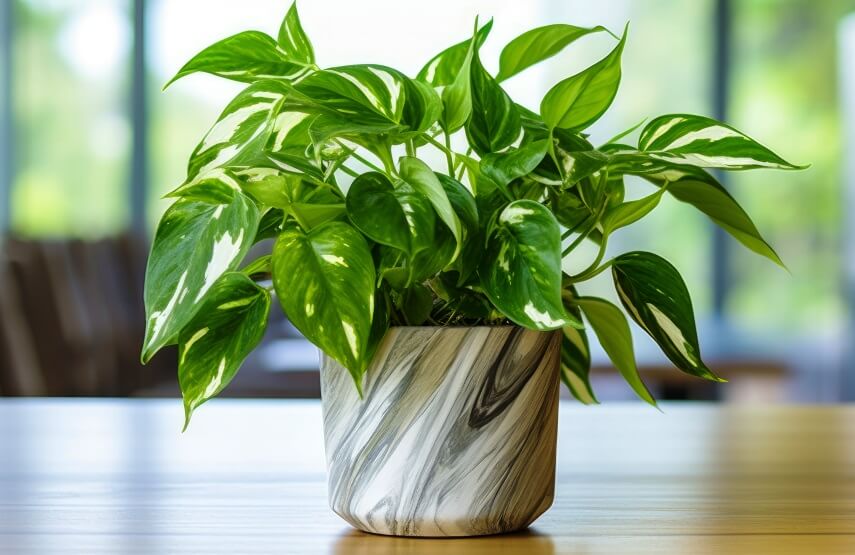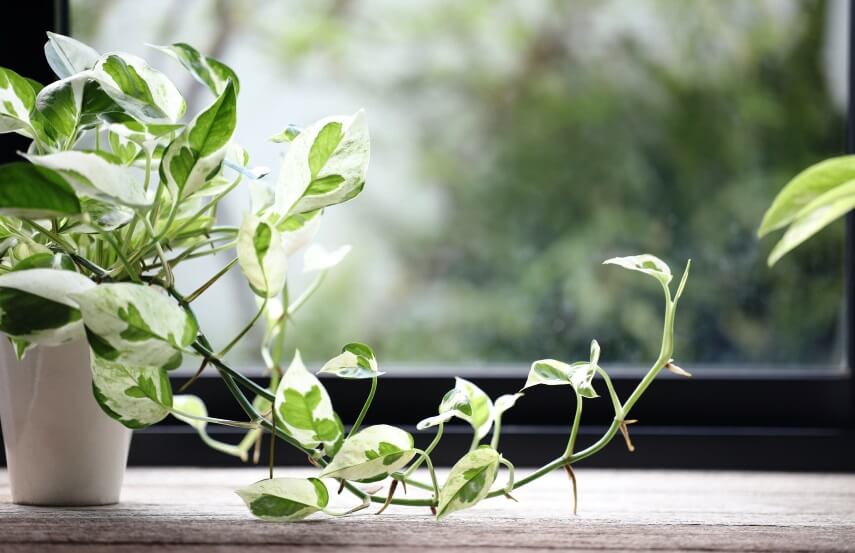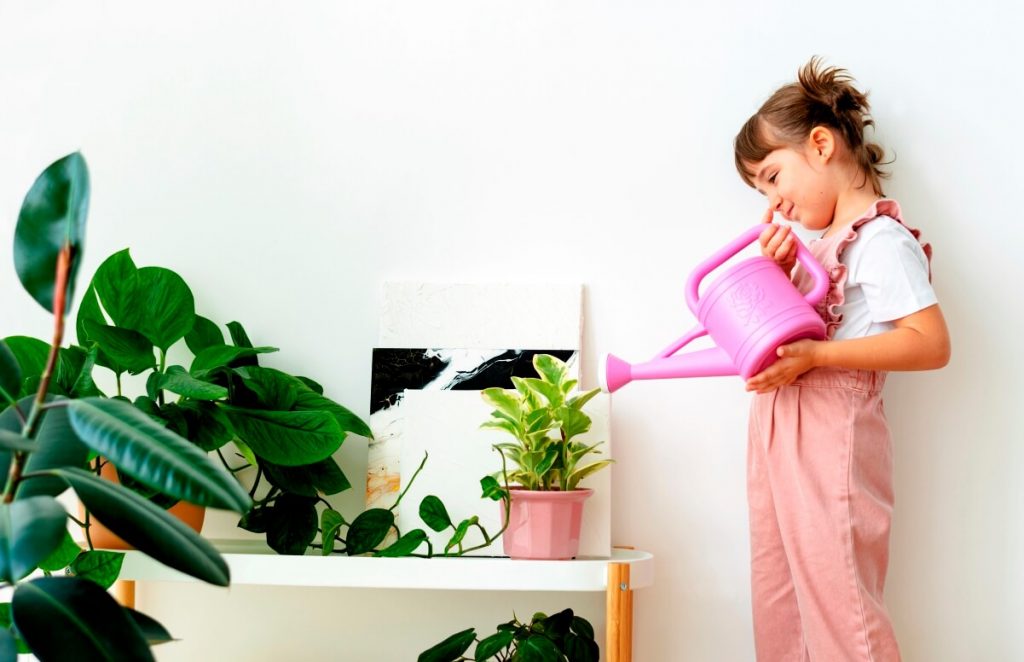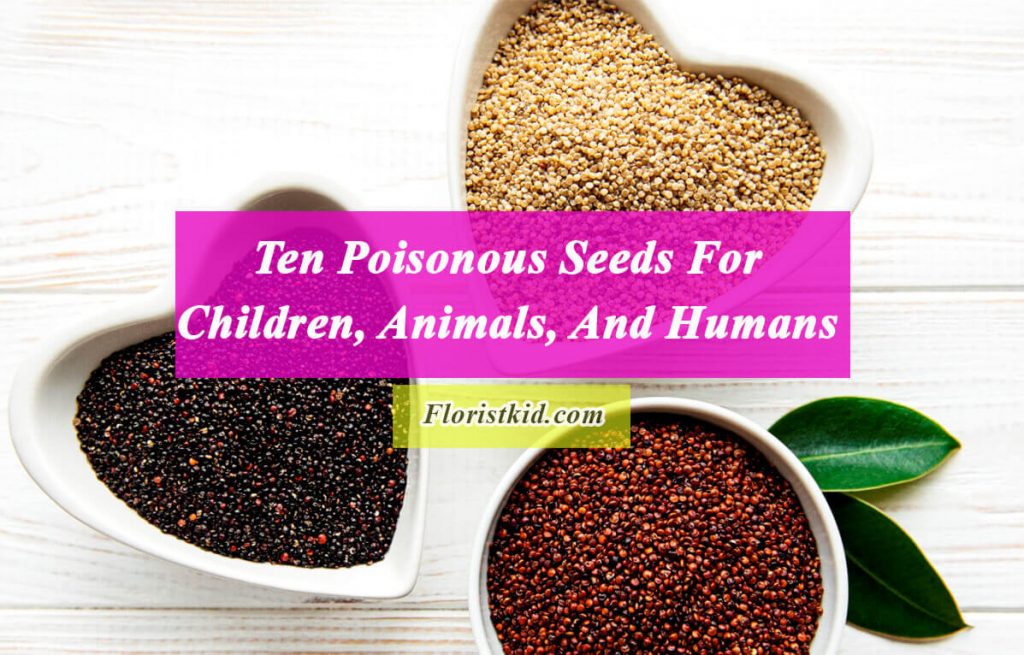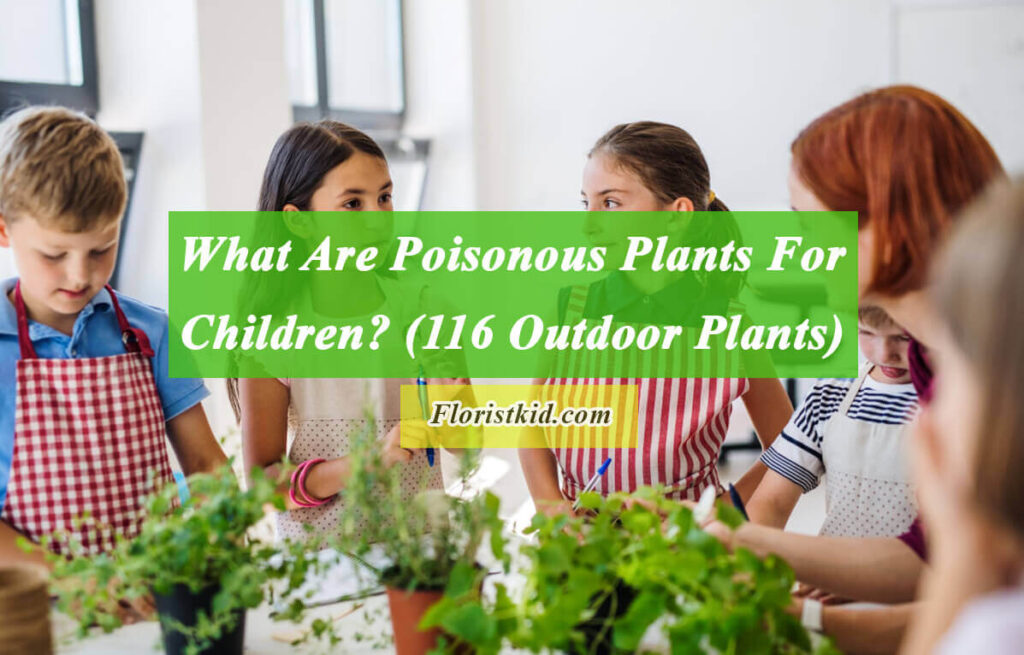Pothos (Epipremnum aureum) is a popular houseplant loved for its attractive leaves and easy maintenance. However, amidst its aesthetic appeal, it is important to be aware of certain toxic components that can pose a risk, especially if consumed or handled irresponsibly. In this article, we will discuss whether Pothos is poisonous to humans and animals.
Pothos is a tropical plant native to Southeast Asia. It is commonly found indoors as a decorative addition to living spaces due to its aesthetic appeal. Pothos vines typically display heart-shaped leaves with beautiful variegation patterns, making it a popular choice among plant enthusiasts.
If you are interested in this topic, you can also read
<<Is Lily Of Valley Poisonous? >> and <<Is Wisteria Poisonous? >> articles.
Toxic Components Of Pothos
Here, we explore the toxic components of pothos, shedding light on potential dangers associated with this popular plant [1, 2].
Oxalates
One primary concern with pothos stems from its oxalate crystals, which are found throughout the plant’s tissues. Oxalates are insoluble calcium salts that can cause irritation and discomfort when ingested or when they come into contact with the skin, particularly for individuals with sensitive skin or those who are prone to allergies. Common symptoms may include mouth and throat irritation, swelling, and skin irritations such as itching or rashes [3].
Is Pothos Poisonous To Humans?
Yes, pothos is mildly poisonous to humans [4, 5].
Potential Symptoms And Precautions
Individuals who accidentally consume or come into contact with pothos may experience symptoms such as mouth and throat irritation, swelling, and increased salivation. In most cases, these symptoms are harmless and subside relatively quickly without medical intervention. If the reaction is severe or persists, seeking medical advice is recommended.
Preventing Pothos-Related Incidents
To minimize the risk associated with pothos, it is important to handle the plant with care. Here are some preventive measures:
Keep Pothos Out Of Reach
If you have small children, it is advisable to place the plant in a location where it cannot be easily accessed or touched.
Proper Hand Hygiene
After handling pothos or any other plants, wash your hands thoroughly to remove any sap that may be present.
Awareness And Education
Understanding the potential risks and symptoms associated with pothos exposure can help prevent accidents and unnecessary panic.
Is Pothos Poisonous To Cats?
Yes, pothos is poisonous to cats. If you are a cat owner, it is important to understand the potential risks associated with having a pothos plant in your home. When chewed or ingested, the calcium oxalate crystals existing in the leaves and stems of photos can cause significant discomfort and potential health issues in cats, primarily causing irritation rather than life-threatening conditions [6].
Symptoms Of Pothos Toxicity In Cats
If your cat ingests or comes into contact with pothos, it may exhibit certain symptoms indicative of poisoning. These symptoms can include:
Oral Irritation
Mouth discomfort, drooling, and excessive pawing at the mouth are common signs. Swelling of the lips, tongue, or throat may occur as well.
Gastrointestinal Upset
Cats may experience vomiting, diarrhea, or general digestive discomfort after ingesting pothos leaves or stems.
Skin Irritation
Direct contact with the plant can cause mild skin irritation or rash in some cats.
Steps To Protect Your Cat From Pothos Toxicity
As a responsible pet owner, you can take proactive measures to ensure your cat’s safety around pothos plants:
Placement
Keep pothos plants out of your cat’s reach, away from areas they frequently roam. Hanging baskets or placing them on high shelves can prevent easy access.
Observe Your Cat
It is essential to keep a close eye on your cat’s behavior, especially if you have pothos plants in your home. Watch for signs of chewing or attempting to ingest the plant.
Deterrents
If your cat displays interest in the plant, you can use deterrents such as citrus-scented sprays or double-sided tape to discourage their interaction with the pothos.
Substitute Plants
Consider incorporating cat-friendly houseplants as an alternative, ensuring their safety while enhancing your home’s aesthetics.
What To Do If Your Cat Is Exposed To Pothos
If you suspect or witness your cat consuming or coming into contact with pothos, take the following steps:
- Remove your cat from the vicinity of the plant immediately to prevent further exposure.
- If your cat exhibits symptoms of poisoning, contact your veterinarian without delay. Share details about the plant, symptoms observed, and any potential ingestion.
- It is crucial not to induce vomiting in your cat unless instructed by a veterinarian, as certain substances can cause more harm if regurgitated.
Is Pothos Poisonous To Dogs?
Yes, pothos is poisonous to dogs. For dog owners, it is essential to understand the potential risks that certain houseplants may pose to their furry friends. In this section, we will explore whether pothos is toxic to dogs, the symptoms of ingestion, and the necessary steps to keep your dog safe [7, 8].
Symptoms Of Pothos Toxicity In Dogs
When it comes to dogs, pothos is considered to be moderately toxic. The plant contains insoluble calcium oxalate crystals, which are the main culprits behind its potential toxicity. If a dog consumes any part of the pothos plant, especially the leaves or stems, it can lead to various adverse effects.
The most common symptoms of pothos ingestion in dogs include:
Oral Irritation
Chewing or biting the plant can cause immediate irritation of the mouth, gums, and tongue, resulting in excessive drooling, pawing at the mouth, or difficulty swallowing.
Digestive Issues
Ingesting pothos may lead to gastrointestinal problems such as vomiting, diarrhea, or loss of appetite.
Skin Irritation
Direct contact with the plant’s sap may cause mild skin irritation or rashes in some dogs.
Potential Allergies
Although rare, some dogs may develop allergies to pothos, which can manifest as itching, sneezing, or respiratory distress.
Steps To Protect Your Dog From Pothos Toxicity
If you suspect or witness your dog ingesting pothos, it is recommended to take the following steps:
- Stay calm: Panicking can make the situation more stressful for both you and your furry friend.
- Remove any remnants: If you can safely do so, remove any remaining pieces of pothos from your dog’s mouth.
- Seek veterinary assistance: Contact your veterinarian immediately, providing them with detailed information about your dog’s symptoms and the plant ingested. They will be able to guide you on the necessary steps to take.
- Follow veterinary advice: Depending on the severity of your dog’s symptoms, your veterinarian may suggest inducing vomiting, providing supportive care, or administering additional treatment.
Preventing Pothos Ingestion
Prevention is always better than cure. To safeguard your dog from potential pothos toxicity:
Placement
Keep them on elevated surfaces, hanging baskets, or in areas where your dog cannot access them.
Alternative Plants
Opt for non-toxic houseplants, such as spider plants, Boston ferns, or palms, to beautify your space without posing a risk to your furry friend.
Training And Supervision
If your dog tends to chew on plants, consider providing appropriate chew toys and basic obedience training to discourage this behavior.
Raising Awareness
Educate your family members, guests, and pet-sitters about the potential risks associated with pothos and other toxic plants.
Conclusion
While pothos can be a wonderful addition to your indoor garden, it is essential to be cautious and vigilant when it comes to its potential toxicity. While pothos may cause irritation and mild symptoms in humans and pets if ingested or touched, severe cases are rare. By following safety precautions and being mindful of its presence, you can enjoy the beauty of pothos without compromising the well-being of your loved ones.

